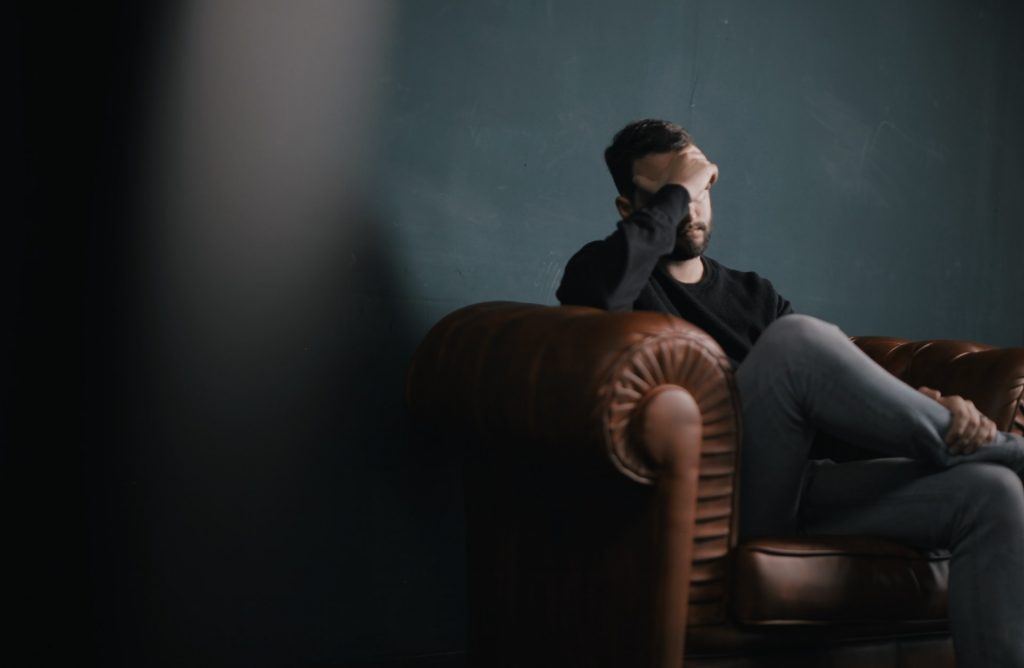Over the past couple of years, talking to entrepreneurs for both my articles and books, good mental health is one of the key topics that come up again and again. There have been both positive and negative sides to the discussions.
Let’s recognise the negative first. We have a huge mental health problem in society. It was already out of control before COVID.
Mental health help is massively under-funded. We have broader divides now between the wealthy and the poor, those with power and those without, people pitted against each other over race, sexuality, or any other segmentation of society.
People are scared, helpless, angry, boiling point-ready for tipping over; angry about their lives being disrespected, savage over poverty, and sick of being poorly treated. Depressed from being given mixed messages that few believe anymore. Sick and tired of being powerless. All of this is guaranteed to dissolve good mental health and aggravate existing conditions.
Into this bubbling pot, we have the forecast tidal wave of mass unemployment. Already on its way through changes with technology, but fast-tracked by the pandemic and a looming recession.
Entrepreneurs’ good (and bad) mental health

For many people, the only answer will be to turn to self-employment and small business to survive physically.
While this might smack of desperation, the strange thing is that the more people I have talked to, the more I find who have found salvation, not just for basic physical needs but also finding mental salvation, in starting their own business.
Take the Australian entrepreneur, Trav Bell, who was so desperate that he asked Beyond Blue, the Australian non-profit mental health help institution, for their help. With support, he took stock, beat demons, and became the world’s number one Bucket List Guy. He now helps thousands of others get over their fears, and has designed a life that enables him to live out his dreams while getting paid.
One of the most open and emotive interviews I have done was with the hugely inspirational Kieron Sparrowhawk. He talked so freely, and so movingly of how he went to Cockfosters Tube Station to jump in front of a train, believing as it is the end of the line. Thankfully, Keiron did not follow through and subsequently developed the MyCognition app to help others retain good mental health or improve their existing conditions.
Both Trav and Keiron were entrepreneurs whose mental health deteriorated while running their businesses. But both chose to start new businesses as part of their recovery.
The American entrepreneur, Alyson Friedensohn, had been aware of the need for good mental health from a young age when she had help coming to terms with her father’s cancer. But it was later that she found herself in more serious trouble, having taken a one-way trip to California to start a business and failing to find her feet. With help, she persevered and founded her company, Modern Health. It now offers triaged support, from full-on help to supporting people to preserve good mental health.
Alyson was among many who have talked to me about the high risk of founder-entrepreneurs having mental health issues. And how dangerous it is, because it is so little talked about. Entrepreneurship has tremendous highs and lows, and many personality types find that attractive, exhilarating even. But living on a roller-coaster is not always conducive to good mental health.
Equally, as Alyson talked about, with the social envy that the internet has encouraged, people have mistaken fame, wealth, success with happiness. In the States, it is now recognised as a big problem, after several high-profile entrepreneur suicides. Fame and success do not equal happiness.
Confidence and good mental health

Low self-confidence and low self-esteem, so often stumbling blocks in good mental health, oddly enough do not stop people becoming entrepreneurs. We see so many high profile figures suffer from imposter syndrome, a scourge to people’s confidence, and not that easy to overcome.
Sometimes, the most surprising people have battled with confidence. I recall James Schramko, super-successful, super laid back, telling me how, when he won Salesman of the Year for BMW, he assumed it must be because all the others had been terrible performers and his area particularly lucrative.
A very, long time ago, I heard Charles Dunstone, co-founder of Carphone Warehouse, talk about how he struggled at school and his lack of confidence from that.
For the first time since becoming an entrepreneur, I realised that I was not alone in having inadequate levels of self-confidence. Since then, I have read many similar stories. In fact, I often wonder if it is some combination of low self-confidence and bloody-mindedness that sets many of us off on the road to entrepreneurship. That low self-confidence at least in our backgrounds is widespread—but it does make us vulnerable to mental health issues too.
It is one of the common misconceptions that entrepreneurs are all very “strong” people. In reality, we all have our weak points, our fondness for highs and lows, and our tendencies towards imposter syndrome. While these are not barriers to building our own businesses, they can be hugely dangerous without the support that everyone talked about. Alyson, Trav and Keiron all talked of a mix of personal and professional help that they had found to enable them to get them through.
There is one peculiar but significant danger to good mental health while being an entrepreneur—it is mind-blowingly lonely at the top. More and more, the entrepreneurs I speak to recommend starting businesses with other people, sharing the pressure, taking breaks, and having people with real empathy to talk to.
The loneliness of the long-distance runner has become the loneliness of the entrepreneur. While entrepreneurship can be your salvation, without a good support system, it can also be incredibly toxic for good mental health.
